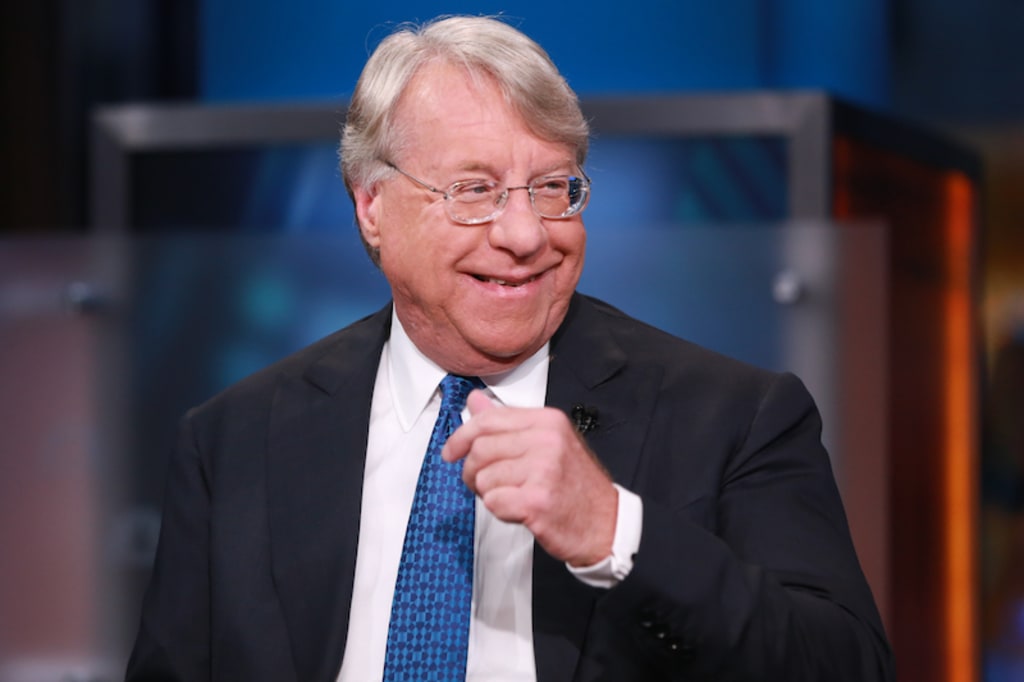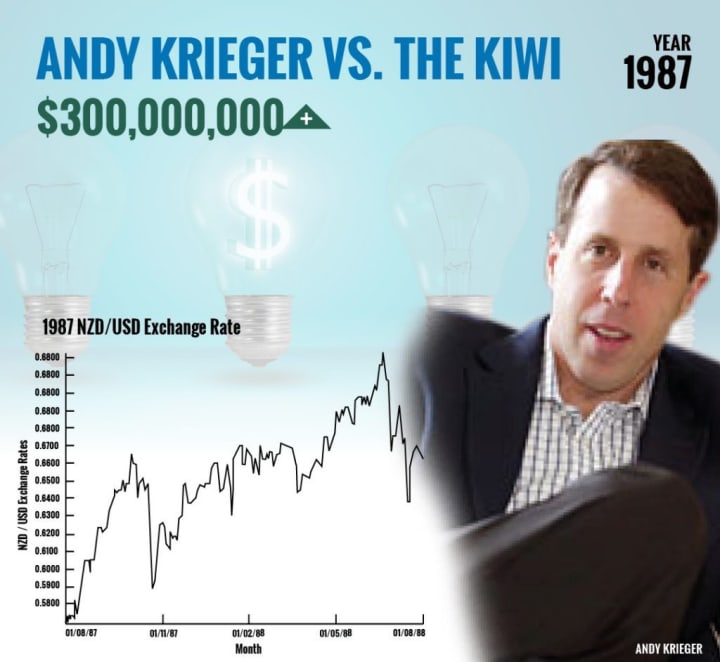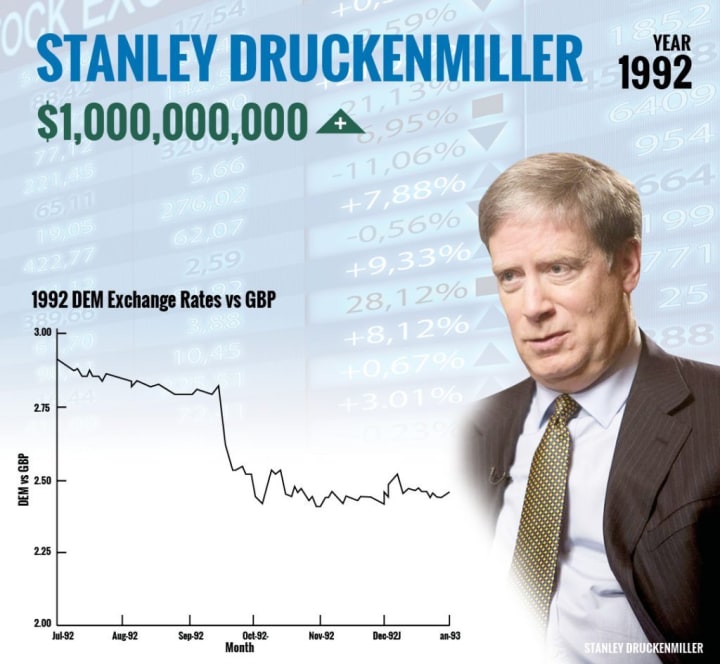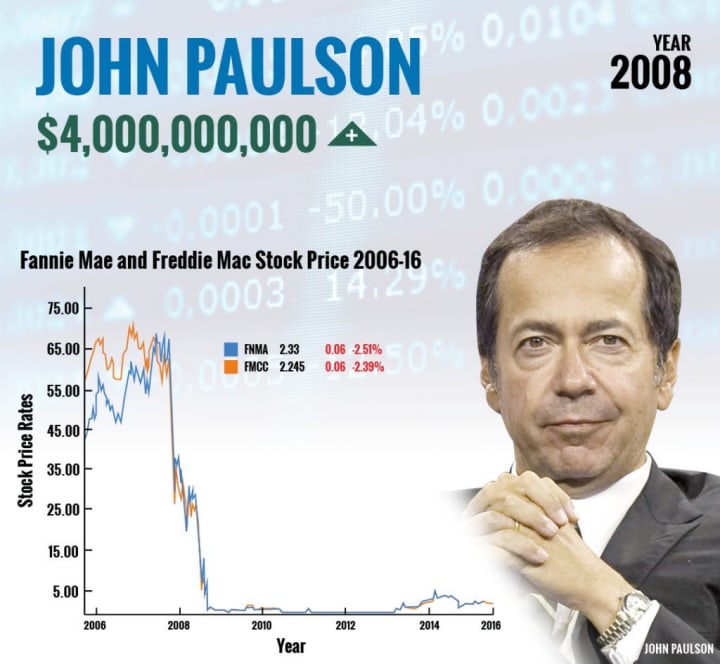Greatest Stock Market Trades Ever Made
Inspire your inner wolf of Wall Street with a run-through of the greatest stock market trades ever made.

What makes a great stock trade? Is it profitability? Absolutely—but it's more than that. It's faith, foresight, and the courage to go against the trend and advice of just about everyone else you meet. Most traders will go with the flow because conventional wisdom will still give you some capital gains.
Great trades are what some of the greatest Wall Street movies ever made are based on. The best Wall Street books regularly espouse the lessons these stock trades offer. Wall Street acts as a teacher and as a proving ground that most will never fully grasp.
That's why so many just "go with the flow," rather than try to act out The Wolf of Wall Streeton their own dime.
However, if you want to really profit in ways that'll make veterans turn their heads in shock, you need to be daring. That's what made the greatest stock trades ever made so insane. Don't believe it? Check out their stories below.
Jesse Livermore's $100 Million Trade

Without a doubt, one of the greatest stock trades ever made was a wild bet made by financial genius, Jesse Livermore. He was a master at shorting the market, with his first accidental short being a sell of Union Pacific shortly after the 1906 Earthquake that razed California.
Livermore's next short happened right at 1929, when he realized that stocks had become far too speculative to remain steady. He shorted the entire market and caused Wall Street to crash as a result.
Surprisingly, things didn't fare too well for him after the crash. Though he was banned from trading in Chicago by 1934, Livermore still had one of the largest hauls in history—and one of the greatest stock market trades ever made before the Great Depression.
Paul Tudor Jones's Black Monday Short
Perhaps one of the only people to go head to head with Jesse Livermore is Paul Jones, who caused a massive market short in 1987. He began to notice a very significant over-valuation of stocks, which in turn meant that the market was due for a correction.
Wondering if there was going to be another 1929 crash, he and his colleagues at Tudor looked at the historical data to compare the similarities. It looked grim. Realizing the writing on Wall Street, Jones sold all his stock in one of the greatest stock trades in history.
The market crashed on Black Monday, with a 22 percent drop shattering prior records. Jones, though, walked away with over $100 million in profit. He ended up being the subject of a PBS made-for-TV movie called Trader as a result of his brilliance.
Andy Krieger's $300 Million Trade

It was 1986, and natural trading maverick Andy Krieger was a member of Banker's Trust with a $700 million trading limit. The young, scrappy investor struggled through the Black Monday crash and realized that many traders were beginning to flock to other currencies as a result of the crash.
The New Zealand dollar, in particular, was getting a lot of backing. He used options to short the Kiwi dollar, and it was so successful that it's not entirely sure how much he was able to short the market by. Some suggest it's around $300 million; others claim it was as much as $1 billion.
He ended up making a massive profit, paid himself a $3 million bonus, and changed workplaces soon after. After almost topping an entire country's currency, I guess that's what you have to do.
Louis Bacon and the Iraq War
Louis Bacon was one of the other traders from the 80s to bet against the markets on Black Monday, but that's not what made him among the few traders to make one of the greatest stock market trades ever witness. His real claim to fame was figuring out international politics better than the CIA.
Realizing that the Middle East was beginning to heat up with conflict, Bacon chose to get out of stocks and went in for an investment on oil. His unconventional method ended up making him an 86 percent return on investment within his first year.
Jim Chanos' Enron Beef

Jim Chanos has become famous for his pessimistic look on the stock market, with one of his most famous quotes being, "I have seen more stocks go to zero than infinity."
With a tendency to foresee companies fail rather than succeed, it's not surprising that he pulled one of the greatest stock market trades ever seen. More specifically, Chanos is known for being the dude that shorted Enron.
Chanos was one of the only investors to really look deeply into Enron and notice red flags. Upon realizing that the stock was over-valued and under-acting, he sold all the stock back when this energy company was famous for once being a stock winner.
Enron's corruption made news shortly after, and the company's stock plummeted. Within months, Enron's doors were on the verge of shutting. Chanos, on the other hand, walked away with a cool $500 million.
To this day, people still remember him as a driving force behind the fall of Enron.
George Soros Broke the Bank of England
Even if you're not into stock market trades, you know who George Soros is. He's the most well-known investor in Europe primarily due to his nickname of being "The Man Who Broke the Bank of England."
During the 90s, Britain seemed to be doing well economically. Soros, on the other hand, noticed something wasn't quite right. Germany's Mark was faring well, while Britain's Pound was almost tripling its inflation. The only reason it looked good was because of regulations in place.
He started taking out loans to short the Pound, and the Bank of England fought back. The Bank of England started to charge upwards of 12 percent interest in loans and other investors panicked. The bank admitted defeat, and the Pound fell over 22 percent in one day.
Soros walked away with $1 billion for his efforts, making him the winner of one of the greatest stock market trades ever made.
Stanley Druckenmiller

Druckenmiller was known for not just making one, but two of the greatest stock market trades ever made. Druckenmiller was one of George Soros' proteges at Quantum, and it seems that he definitely learned from the best.
Like Soros, his area of expertise was currency. Unlike his mentor Soros, he made his fortunes betting against the Deutschmark. Twice.
Around the time when the Berlin Wall fell, Druckenmiller realized that the value of the Mark was way too high considering what unification would mean. So, he shorted the market. His first bet against the Mark was done in conjunction with Soros and netted a 60 percent profit.
Next, when Soros broke the British Pound, Druckenmiller realized that investors would flock to the Mark. So, he bought up a bunch, and by the time investors followed suit, he had netted a cool $1 billion.
Kyle Bass' Doomsday Foresight
The most recent Great Recession was a result of the sub-prime mortgage lending spate that took place during the 90s. Most people felt like it was a great time to buy a house and invest in real estate—however, skeptical buyers weren't so sure.
Kyle Bass, upon hearing about what was going on in the sub-prime market, hired a team of private investigators to find out how dire the situation really was.
Investigators returned with damning data that showed that most borrowers would be likely to default on their loans. Bass took that information, realized most borrowers would default, and sold off his stocks involved in that market sector right before the Great Recession.
His stock trade got him around $3 billion, making it one of the greatest stock market trades of the current century.
John Paulson's Credit Default Swaps

For a large chunk of his time, John Paulson was not seen as a large player in Wall Street. That all changed when he noticed the looming crisis happening in the US housing market and made one of the greatest stock market trades in history.
Much like Kyle Bass, John Paulson began to get aware that the housing market's sub-prime lending was proving itself to be toxic. Paulson realized that the cracks were beginning to show. He snapped up around $150 Credit Default Swaps.
This paid off extremely handsomely when it became clear that bank profits weren't what the were expected to be. By the end of 2007, Paulson and his group made over $15 billion.
David Tepper's Bet on Banks
In 2009, the banking crisis had hit a fever pitch. Some of the most long-running banks in the world, such as Bear Stearns and Lehman Brothers, shuttered their doors. The Dow Jones was in the toilet. Now, less than ever, seemed like a time for investing in banking.
Everyone was distracted by the turmoil that banks were facing, except for David. Rather than focus on the bad, David Tepper decided to move into banking harder than anyone else on the market. This was a bold move, considering that most people were totally convinced that more banks would be closing soon.
Obvious as it may seem to us today, it was one of the greatest stock market trades ever made because it was seen as such a risky move. The bet Tepper made paid off massively, with a grand total of $7 billion in profit.
About the Creator
Cato Conroy
Cato Conroy is a Manhattan-based writer who yearns for a better world. He loves to write about politics, news reports, and interesting innovations that will impact the way we live.






Comments
There are no comments for this story
Be the first to respond and start the conversation.